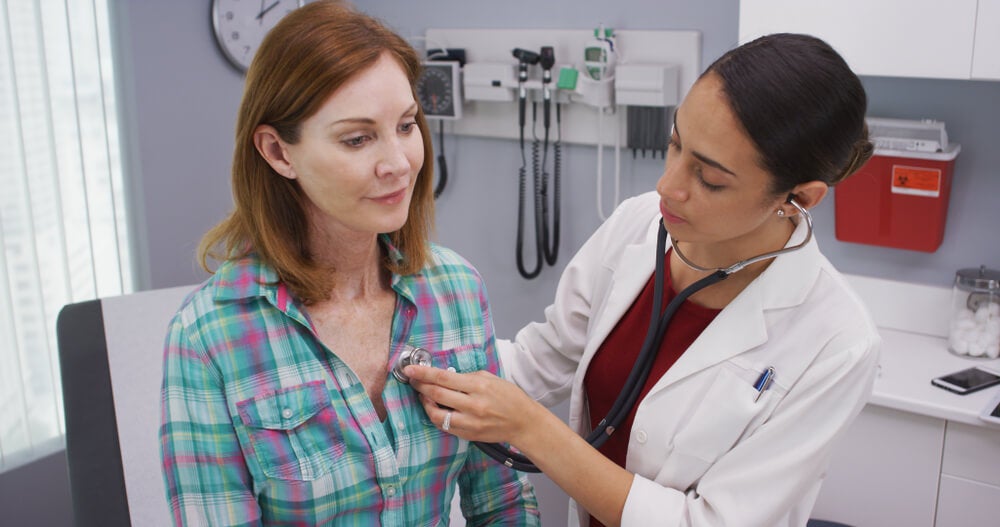Why RNs Are Seeking More Autonomy in Nursing
by Carson-Newman … on June 7, 2022
When caring for patients in clinical practice, the clinician providing care often experiences a sense of personal responsibility for patient outcomes. Registered nurses work closely with patients and families, and many registered nurses frequently desire more independence to make timely patient care decisions that may impact these outcomes. This autonomy in nursing is enjoyed by many advanced practice nurses, giving them the freedom to make independent decisions and act in alignment with their values while applying professional expertise in the best interest of their patients.
If you are a registered nurse desiring more of this autonomy in your clinical practice, read on to learn the benefits of autonomy in nursing and how you can achieve it by earning advanced nursing credentials. This blog will show you how to move forward if you choose to pursue this exciting advanced career path.
Why is autonomy in nursing important?
An interdisciplinary patient care team relies on each member of the team to individually demonstrate competency in clinical practice along with the willingness and ability to effectively work together with other disciplines. The overall health of our patients and the experience they and their families receive is dependent on each member of the care team functioning to the greatest extent of their training and scope of practice.
Autonomy in nursing is important because autonomy yields trust and collaboration within an interdisciplinary care team. Where there is autonomy, there also must be excellent communication to ensure each member of the care team has what they need to do their role effectively while implementing interventions with seamless continuity of care.
Nursing Autonomy: An Example
Wound care is especially important in nursing homes and extended care facilities as patients are routinely evaluated for skin integrity to prevent breakdown and minimize the occurrences of pressure ulcers. Many hospice nurses and those specifically working with the geriatric population encounter wounds that require timely treatment.
Skilled nurses often work collaboratively with other nurses from different clinical agencies to partner in the care of their patients. Positive clinical outcomes require nursing autonomy to collaborate and determine the best path forward for treating wounds.
Care plan meetings allow nurses to come together from different disciplines to bring their expertise and clinical assessments forward for consideration. Together, nurses can develop an optimal treatment plan for wound care when two clinical judgments are presented and valued along with the implementation of established clinical guidelines. Often, nurses will agree on the best path forward and together create a context for improved patient outcomes.
Increasing Autonomy in Nursing
Nurses and physicians are complementary and collaborative in their roles and health care responsibilities. Physicians tend to appreciate nurses who can function autonomously and provide accurate, thorough, and concise updates on patient status. Likewise, nurses tend to appreciate physicians who listen and trust their clinical judgment so the partnership in providing quality care can thrive. Nursing autonomy promotes teamwork with physicians.
The role of an RN can be challenging because you do not have the authority to make changes to a care plan without first discussing with a physician or nurse practitioner and receiving their orders that hold the authority to make changes.
Time constraints and the demands of patient care may limit physician availability for nursing updates, which is a strong case for giving RNs desiring greater autonomy. In instances where resources are limited, increased nurse practitioner autonomy may contribute to timely care decisions and improve the efficiency of the health care system as a whole. Nursing autonomy is one potential solution to reduce stress on the system.
Recent nursing statistics underline the need for more health care practitioners in the U.S. health system:
- By 2029, nurse practitioner jobs are expected to increase by 45%
- By 2030, registered nursing jobs are expected to increase by 9%
- By 2030, approximately 4.7 million nurses are expected to retire
- The average age of nurses is increasing with the largest age group being those 65+
As the nursing profession continues to flourish, nursing autonomy is becoming even more essential.
Types of Autonomy in Nursing
There are two types of autonomy in nursing: clinical autonomy and control over nursing practice. Let's take a look at the differences between these two types of nursing autonomy.
Clinical autonomy is largely about patient care. If you are an RN and desire greater freedom and authority to use your discretion in determining patient care plans, clinical autonomy is what you are seeking. Clinical autonomy is appealing to nurses for the following reasons:
- Nurses are often familiar with family dynamics and patient preferences
- Nurses have awareness of daily clinical presentations and can closely evaluate the effectiveness of the current care plan
- Nurses exhibit growing confidence in their professional expertise with greater experience
- Nurses desire to know and apply the best available evidence in their clinical practice
Distinct from the concept of clinical autonomy is the concept of control over nursing practice. Control over nursing practice is autonomy largely focused on the clinical practice setting. Nurse practitioners in this sphere have the freedom to make decisions about organizational structure, rules and regulations, governance, and operational policies.
Improving Autonomy in Nursing for RNs
We can improve autonomy in nursing for RNs by maintaining leadership styles in nursing that encourage mentorship, guidance, and the promotion of evidence-based care. When nurses feel supported and valued, this environment is healthy and helpful for continued performance improvement. Goal setting is essential to train newer nurses with mentorship experiences that will foster professional relationships among the members of the care team.
Some initiatives in recent years to increase autonomy for RNs include:
- Implementation of shared governance where nurses participate in decision making
- Empowerment of nurses through leadership methods that focus on strengths
- Use of technologies to increase connectivity between patients and nurses
- Qualitative syntheses of evidence to inform strategies for developing nurse autonomy (such as training courses that focus on clinical reasoning and self-reliance)
Autonomy does not mean that individual care providers function separately and in an isolating way; autonomy encourages providers to become all they can be and contribute the most value in a clinical practice setting for teamwork and quality care improvement.

Autonomy as a Nurse Practitioner and State Practice Authority
If you desire greater nursing autonomy, becoming an NP will give you the freedom and authority to affect clinical outcomes in meaningful ways. The NP's role includes diagnosis and treatment, ordering diagnostic testing, considering the differential diagnoses that could be affecting the patient, and making determinations for the pharmacological and non-pharmacological treatment directives.
Within the advanced practice nursing role, there are varying levels of autonomy that NPs have based on the state of residence and licensure. Three general categories of NP practice authority are described below.
- The NP may live in a state where full practice authority is permitted with optional in-house physician oversight or mandatory collaboration.
- The NP may live in a state where partial practice authority is permitted with varying levels of permission for prescribing (controlled substances vs. non-controlled substances).
- The NP may live in a state where mandatory collaboration with a physician is required for some or all clinical practice activities.
It is important to review the state practice act and the rules and regulations for clinical practice in the state in which you live to ensure compliance. Regulations are subject to change and are evolving with the expansion of telemedicine and virtual care options.
Nurse Practitioner Autonomy: An Example
A nurse practitioner has the professional autonomy to both create patient care plans and modify them as appropriate after evaluating the outcomes of treatments prescribed. In a family practice setting, patients often visit with common health care problems such as sinus infections or asthma. The determination of when to prescribe an antibiotic vs. when to watch and wait is an example of nurse practitioner autonomy.
When a treatment plan does not result in the desired outcome, such as when symptoms of asthma are not well controlled on a particular medication regimen, the nurse practitioner has the autonomy to partner with the patient and make adjustments to medications, treatment frequency, delivery method, and other factors of the care plan that will impact the patient outcomes.
There may be a collaborative agreement in place with a physician depending on state regulations for nurse practitioner practice and prescribing, but the evaluation and treatment of patients are both within the nurse practitioner's scope. A registered nurse may have the insight to suggest a modification to a primary care provider, but a nurse practitioner has the professional autonomy to responsibly diagnose and treat patients in alignment with clinical practice guidelines.
Level up Your Nursing Career With Carson-Newman
So, are you interested in learning more about how to become an NP to increase your autonomy in nursing? Now that you are aware of just how important autonomy can be and the exciting ways autonomy can be increased, you can look into Carson-Newman for our accredited and well-reviewed online MSN-FNP program.
Fill out this form to download our program guide to learn how you can advance your career in under three years part-time.
